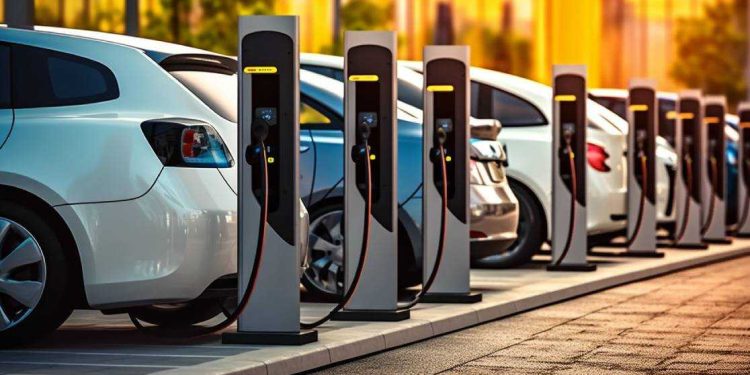The Rise of EV-Friendly Car Transport Services As electric vehicles (EVs) continue to gain popularity, the demand for specialized car transport services has also increased. Traditional auto transport methods were primarily designed for gasoline-powered cars, but EVs require different handling and shipping considerations. To accommodate this shift, many transport companies are now offering EV car transport services tailored to the needs of electric vehicle owners. From battery-conscious shipping to eco-friendly transport options, the rise of green vehicle transport is shaping the future of the auto shipping industry.Why EV Car Transport Services Are GrowingThe increasing number of electric cars on the road is driving demand for specialized shipping solutions. Several factors contribute to this trend:
- Surging EV Sales – More consumers are purchasing electric vehicles, with major automakers expanding their EV lineups. This creates a higher demand for electric car shipping services.
- Long-Distance EV Relocations – Unlike gas-powered cars, EVs require careful planning for long-distance travel, making professional transport services a preferred option.
- Dealership and Manufacturer Shipments – As EV adoption grows, dealerships and manufacturers need efficient transport solutions to deliver vehicles to customers across the country.
- Eco-Friendly Shipping Preferences – Many EV owners prioritize sustainability and look for green transport options that align with their values.
Special Considerations for Electric Car ShippingEVs have unique features that require special attention during transport. Unlike gasoline-powered cars, which can be easily refueled, EVs rely on battery power, making energy management a key factor in shipping. Here are some of the primary considerations for EV-friendly car transport:1. Battery Charge Level
- Most auto transport companies recommend keeping the battery charge between 20% and 50% before shipping.
- A partially charged battery helps prevent drainage while ensuring the car has enough power for loading and unloading.
- Fully charged batteries can pose risks in extreme temperatures, making moderate charging ideal.
2. Weight Differences
- EVs tend to be heavier than gas-powered vehicles due to their large battery packs.
- Transport carriers must account for this extra weight when loading multiple vehicles to ensure proper weight distribution and compliance with safety regulations.
3. Special Handling and Loading
- Some EVs have low ground clearance, requiring enclosed transport or specialized ramps to prevent damage during loading.
- Electric vehicles are often transported using soft tie-downs instead of traditional chains to avoid damage to sensitive undercarriage components.
Green Vehicle Transport SolutionsMany EV owners prefer eco-friendly shipping options that align with their sustainability goals. Some of the ways transport companies are making their services greener include:1. Electric and Hybrid Transport Trucks
- Some shipping companies are introducing electric or hybrid-powered transport trucks to reduce carbon emissions.
- By using clean energy vehicles, these companies can further minimize the environmental impact of car shipping.
2. Consolidated Shipping for Efficiency
- Instead of shipping single vehicles on separate trips, consolidated shipping combines multiple cars on one carrier.
- This reduces the number of trips, cuts down on fuel consumption, and lowers emissions.
3. Enclosed Transport for Premium EVs
- High-end electric cars, such as Tesla, Rivian, and Lucid models, often require enclosed transport for additional protection.
- While enclosed transport costs more, it shields the vehicle from weather, road debris, and potential damage during transit.
Electric Car Shipping Tips for OwnersIf you’re planning to ship an EV, following these electric car shipping tips can ensure a smooth and safe transport experience:
- Choose an EV-Experienced Transport Company – Look for shippers that specialize in electric vehicle transport and understand battery care requirements.
- Check for EV-Compatible Equipment – Ensure the carrier has experience handling EVs, including proper loading techniques and secure tie-downs.
- Confirm Insurance Coverage – Verify that the transport company provides comprehensive insurance to protect your electric vehicle during transit.
- Remove Accessories – Take off external accessories like charging cables or roof racks to prevent damage.
- Plan for Pickup and Delivery – If your EV has limited range, make sure you have a nearby charging station available after delivery.
As electric vehicles become more mainstream, the need for EV car transport services will only continue to grow. Transport companies are adapting to these changes by offering specialized solutions such as battery-conscious shipping, enclosed transport, and green vehicle transport options. By choosing an experienced and eco-friendly auto transport provider, EV owners can ensure their vehicles are shipped safely while supporting a more sustainable future. If your car has to be scrapped, look for a company for buying scrap carsand rent a car.







